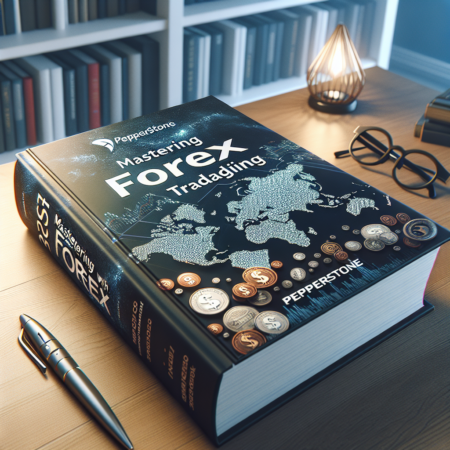Choosing the Right Broker: Your Comprehensive Guide to Top Trading Partners
Selecting the right broker is a pivotal decision for any investor or trader aiming to navigate the financial markets successfully. With numerous options available, understanding the key factors that differentiate brokers can empower you to make informed choices that align with your financial goals and trading style.
Why Choosing the Right Broker Matters
Your broker serves as the gateway to the financial markets, providing the tools, resources, and support necessary to execute trades and manage investments. A reliable broker not only ensures the safety of your funds but also offers competitive fees, robust trading platforms, and excellent customer service. Conversely, a subpar broker can lead to increased costs, limited trading opportunities, and potential security risks.
Key Factors to Consider When Choosing a Broker
1. Regulation and Security
Regulation ensures that brokers operate under strict guidelines, safeguarding your investments from fraudulent activities. Look for brokers regulated by reputable authorities such as the Financial Conduct Authority (FCA) in the UK, the Australian Securities and Investments Commission (ASIC), or the U.S. Securities and Exchange Commission (SEC). Additionally, assess the broker’s security measures, including encryption protocols and insurance coverage.
2. Trading Platforms and Tools
A robust trading platform is essential for executing trades efficiently and accessing market data. Evaluate the broker’s platform for user-friendliness, speed, and available features such as advanced charting tools, automated trading options, and mobile accessibility. Popular platforms like MetaTrader 4 and 5, as well as proprietary platforms, offer a range of functionalities to suit different trading preferences.
3. Fees and Commissions
Understanding the fee structure is crucial to manage your trading costs effectively. Brokers may charge commissions, spreads, or a combination of both. Additionally, be aware of other potential fees, including withdrawal fees, inactivity fees, and costs related to currency conversion. Compare the fee structures of different brokers to find one that offers competitive rates without compromising on service quality.
4. Customer Support and Service
Reliable customer support can make a significant difference, especially when encountering technical issues or needing assistance with your account. Choose brokers that offer multiple support channels such as live chat, email, and phone support. Additionally, consider the availability of educational resources, tutorials, and responsive customer service to enhance your trading experience.
5. Range of Available Assets
Diverse asset offerings allow you to build a well-rounded portfolio. Assess the variety of financial instruments available, including stocks, forex, commodities, indices, and cryptocurrencies. Brokers like AvaTrade, eToro, BlackBull, and Pepperstone offer extensive asset selections, enabling traders to diversify their investments and capitalize on different market opportunities.
6. Ease of Use and User Experience
An intuitive and easy-to-navigate interface enhances your trading experience. Evaluate the broker’s website and platform for ease of account setup, deposit and withdrawal processes, and overall usability. A seamless user experience can save you time and reduce the likelihood of errors during trading.
7. Reputation and Reviews
Researching a broker’s reputation through reviews and testimonials can provide valuable insights into their reliability and performance. Look for feedback from other traders regarding their experiences with trade execution, customer service, and overall satisfaction. A broker with positive reviews and a strong industry reputation is more likely to meet your trading needs effectively.
Top Recommended Brokers
Based on extensive research and industry expertise, the following brokers stand out for their exceptional regulation standards, transparency, and reliability:
AvaTrade
AvaTrade is renowned for its comprehensive regulatory compliance, offering services in over 180 countries. It provides a wide range of trading instruments, user-friendly platforms, and excellent customer support, making it a top choice for both beginners and experienced traders.
eToro
eToro excels in social trading, allowing users to follow and copy the strategies of successful traders. With robust regulatory oversight, a diverse range of assets, and a highly intuitive platform, eToro is ideal for those looking to engage in collaborative and innovative trading practices.
BlackBull
BlackBull offers competitive spreads, advanced trading tools, and a strong focus on customer education. Its commitment to security and regulatory compliance ensures a safe trading environment, making it a preferred broker for many investors seeking reliability and performance.
Pepperstone
Pepperstone is celebrated for its low-latency execution, extensive asset selection, and professional-grade trading platforms. With multiple regulatory licenses and a reputation for transparency, Pepperstone is well-suited for serious traders aiming for optimal trading conditions.
How to Evaluate Brokers: Step-by-Step Guide
- Identify Your Trading Needs: Determine your investment goals, preferred trading instruments, and the level of support you require.
- Research Regulatory Compliance: Verify the broker’s regulatory status with relevant authorities and assess their security measures.
- Compare Fees and Commissions: Analyze the cost structures of different brokers to find the most cost-effective option.
- Test the Trading Platform: Utilize demo accounts to evaluate the usability and functionality of the broker’s trading platforms.
- Assess Customer Support: Reach out to customer service with queries to gauge their responsiveness and helpfulness.
- Read Reviews and Testimonials: Consider feedback from other traders to understand the broker’s strengths and weaknesses.
- Start with a Small Investment: Begin trading with a modest amount to test the broker’s services before committing significant funds.
Common Mistakes to Avoid
When choosing a broker, avoid these common pitfalls to ensure a smooth and successful trading experience:
- Ignoring Regulation: Operating with an unregulated broker can expose you to significant risks.
- Focusing Solely on Fees: While low costs are important, they shouldn’t compromise other critical factors like platform quality and customer support.
- Neglecting to Test Platforms: Not trying out the broker’s trading platform can lead to frustration and inefficiency.
- Overlooking Asset Diversity: Limited asset options can restrict your ability to diversify and optimize your portfolio.
- Failing to Read the Fine Print: Always review the terms and conditions to understand fee structures, withdrawal policies, and other important aspects.
Conclusion
Choosing the right broker is fundamental to achieving success in the financial markets. By carefully evaluating regulatory compliance, trading platforms, fee structures, customer support, and asset offerings, you can select a broker that aligns with your trading objectives and enhances your investment experience. Brokers like AvaTrade, eToro, BlackBull, and Pepperstone exemplify the highest standards in the industry, providing reliable and user-centric services that cater to a diverse range of traders.
Frequently Asked Questions
- What should I look for when choosing a broker?
- When choosing a broker, consider factors such as regulation and security, trading platforms and tools, fees and commissions, customer support, the range of available assets, ease of use, and the broker’s reputation.
- Is broker regulation important?
- Yes, broker regulation is crucial as it ensures that the broker adheres to strict guidelines, providing a secure and trustworthy environment for your investments.
- How do fees affect my trading?
- Fees can significantly impact your overall trading profitability. High fees can erode your profits, so it’s essential to choose a broker with competitive and transparent fee structures.
- Can I trust reviews when selecting a broker?
- Yes, reviews from other traders can offer valuable insights into a broker’s reliability, customer service, and overall performance. However, it’s important to consider multiple sources to get an unbiased perspective.
- What are the top brokers for beginners?
- Brokers like AvaTrade and eToro are highly recommended for beginners due to their user-friendly platforms, comprehensive educational resources, and strong regulatory standards.
Disclaimer
The information provided in this article is for informational purposes only and should not be construed as financial or investment advice. It is always recommended to conduct thorough research and consult with a professional advisor before making any investment decisions.


















